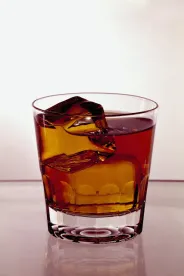In another blow to consumers that demand absolute rustic authenticity from their top-shelf bourbon purchases, a court in the Southern District of California has dismissed a false advertising class action against Maker’s Mark for describing its product as “handmade.” We recently covered a similar case involving the same bourbon and “handmade” claim in the Northern District of Florida, which was also dismissed.
Even though these two false advertising claims did not make it past prohibition, as the craft foods and beverage movement takes root in the mainstream, more cases are emerging in which consumers challenge claims of a product’s authenticity. Like the peephole slot on the door of a speakeasy, this recent case gives us some insight into these vibrant developments.
The putative class plaintiffs sued under California’s unfair competition and false advertising laws, alleging that the label statement “handmade” was deceptive. The plaintiffs argued that Maker’s Mark could not be “handmade” because the manufacturing process depicted in marketing materials involves “little to no human supervision, assistance or involvement” and was “mechanized and/or automated.” It is not clear what level of human “involvement” plaintiffs were expecting, but perhaps they expected the stills to be monitored by shifts of toothless Appalachians cradling shotguns and chuckling under their breath.
Regardless – and more importantly for future alcohol advertising cases – the court rejected Maker’s Mark’s novel first argument that California’s “safe harbor doctrine” insulated them from false advertising liability. Under the safe harbor, California false advertising laws do not apply when a defendant complies with relevant federal regulations, such as obtaining FDA or USDA approval. Interestingly, Maker’s Mark argued that pre-approval of the product label by the Tobacco Tax and Trade Bureau (“TTB”) qualified as compliance and vindicated the “handmade” claim.
The court disagreed. Citing to a factually similar case, Judge Houston indicated that the safe harbor did not apply because TTB’s approval process might not be as “stringent” as a USDA or FDA approval process and that it was unclear (at least on a motion to dismiss) whether the “handmade” claim was within the TTB’s purview. However, the court limited its findings to “the circumstances here” leaving the door ajar for others to explore whether advertisers of alcohol products can take shelter under TTB approval in other situations.
But just as with John Barleycorn – the persecuted whiskey sprite of English folklore – the court decreed that plaintiffs’ claims must die. Pleading likelihood of consumer deception in vain, plaintiffs essentially argued that whiskey-buyers understand “handmade” to imply intensive human labor or, at the very least, the use of “handheld tools,” rather than the mechanized manufacturing process of the sort Maker’s Mark used.
Makers’ Mark replied, more than a little dryly, that it “cannot be that Maker’s Mark employees break up the grain with their hands, stir the mixture by hand, distill and ferment the alcohol without the use of any machinery, make … glass bottles by hand, fill each bottle by hand, and handwrite the labels on the bottles.” Although this could (or should) provide the basis for a Kickstarter pitch or Portlandia skit, it is probably fair to say that consumers do not expect national beverage makers to emulate 13th century peasant laborers in their manufacturing.
The court saw the wisdom of the bourbon maker’s argument. Following the companion Florida decision we reported earlier, the court found that, despite plaintiffs’ arguments, “‘handmade’ cannot reasonably be interpreted as meaning literally by hand nor that a reasonable consumer would understand the term to mean that no equipment or automated process was used to manufacture the whiskey.” The claims were dismissed with prejudice.
While these two “handmade” whiskey decisions ended up in the gutter, we expect more false advertising suits from consumers that expect advertisers to deliver on promises of product “authenticity.” We will, of course, keep you in the loop.




 />i
/>i
